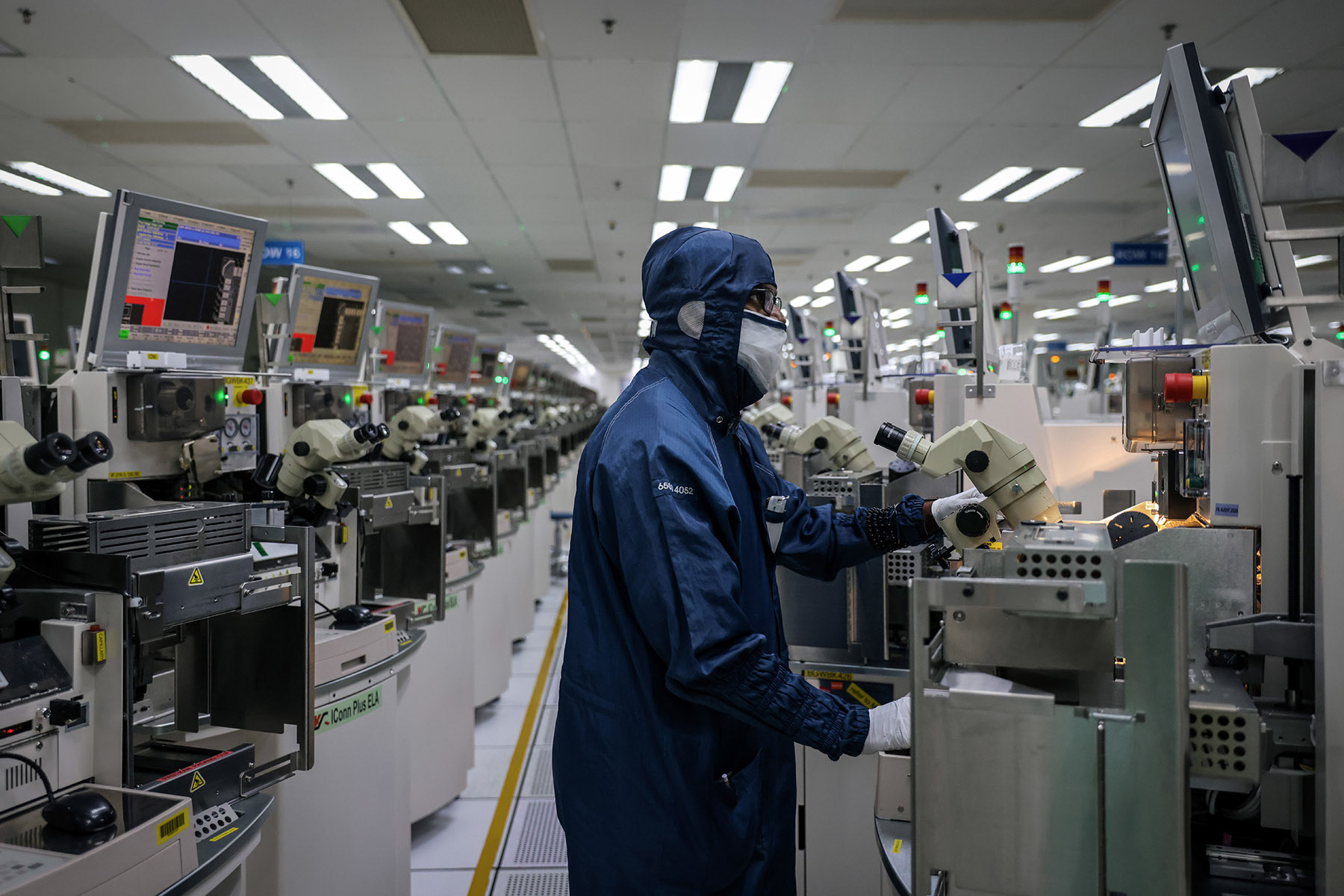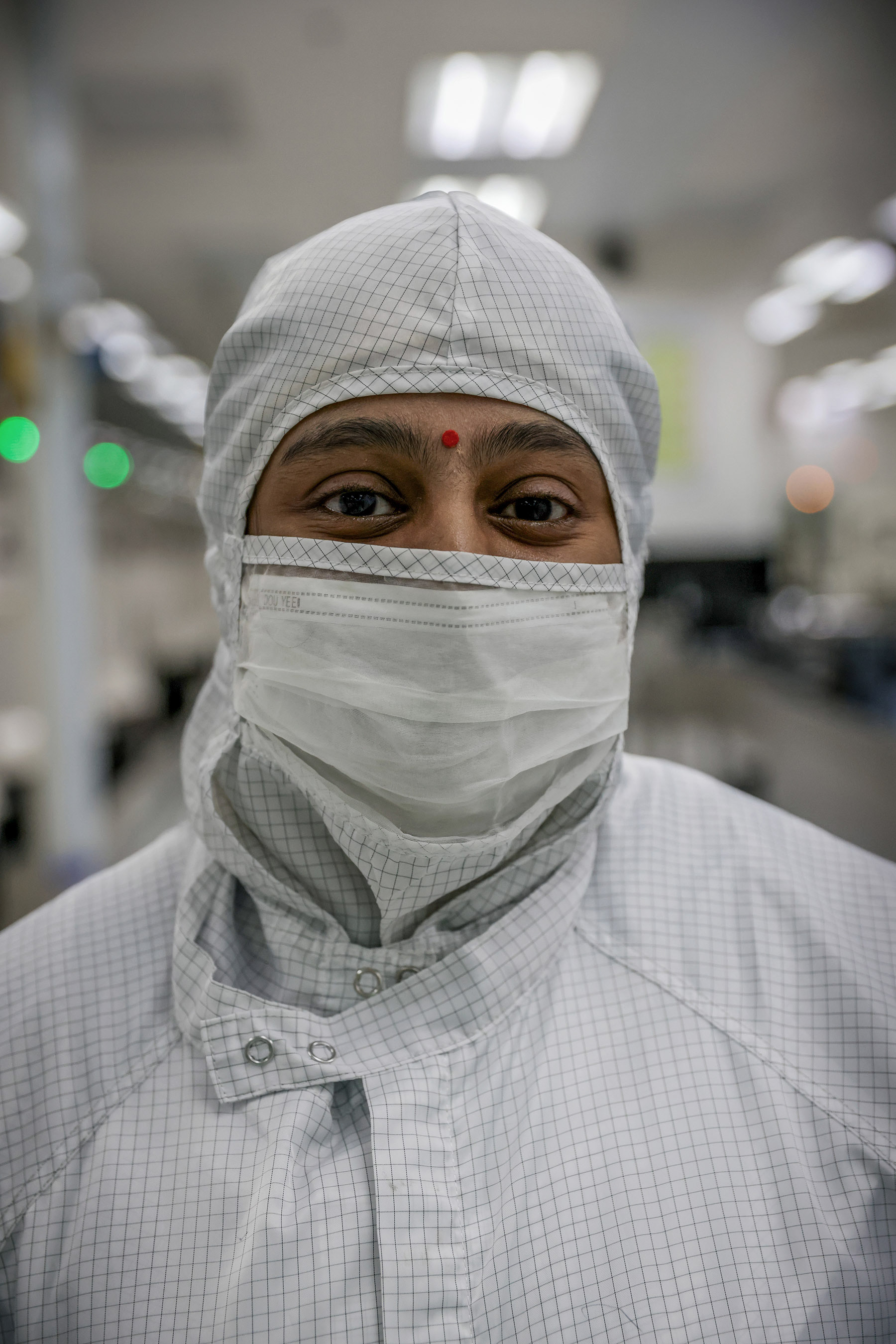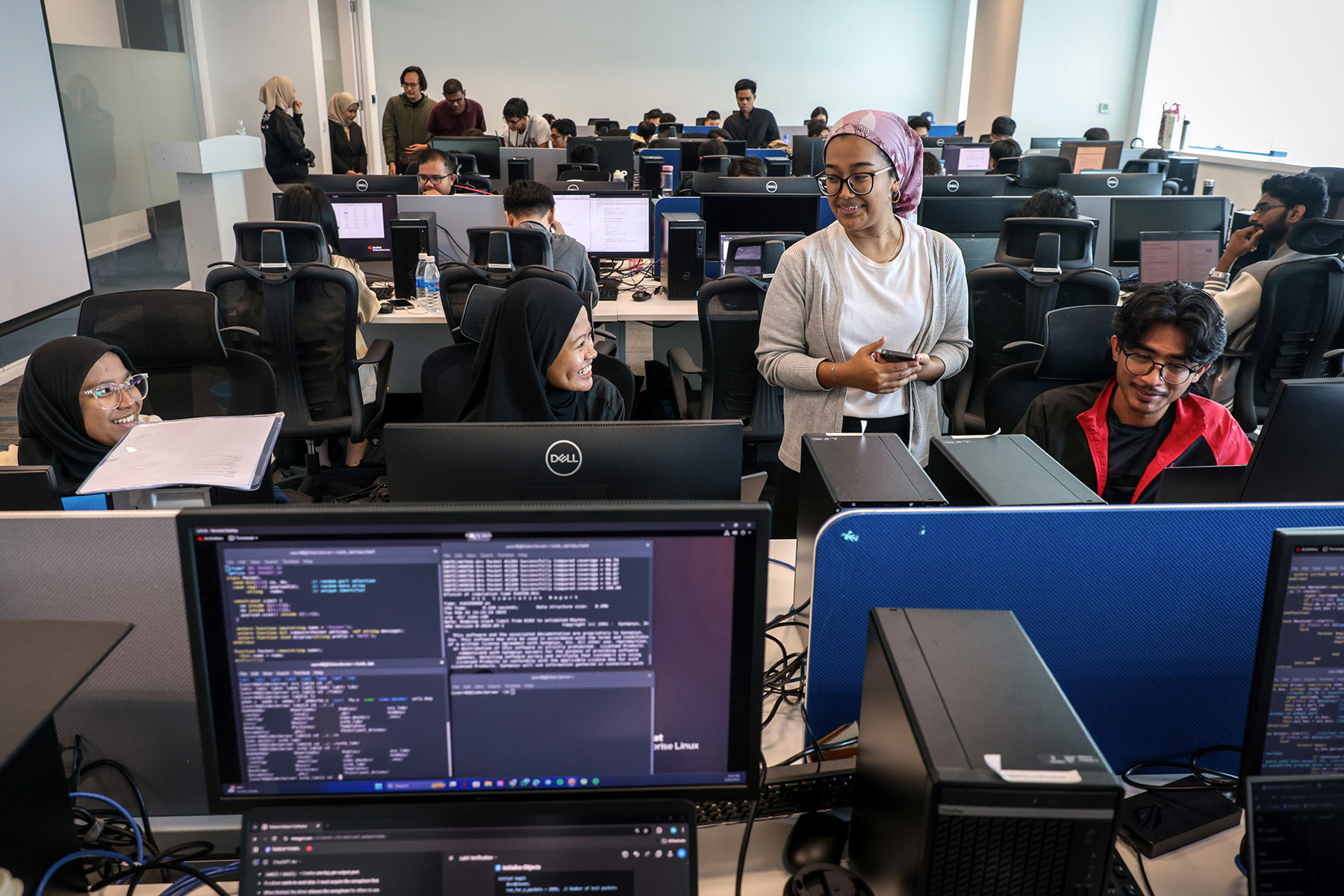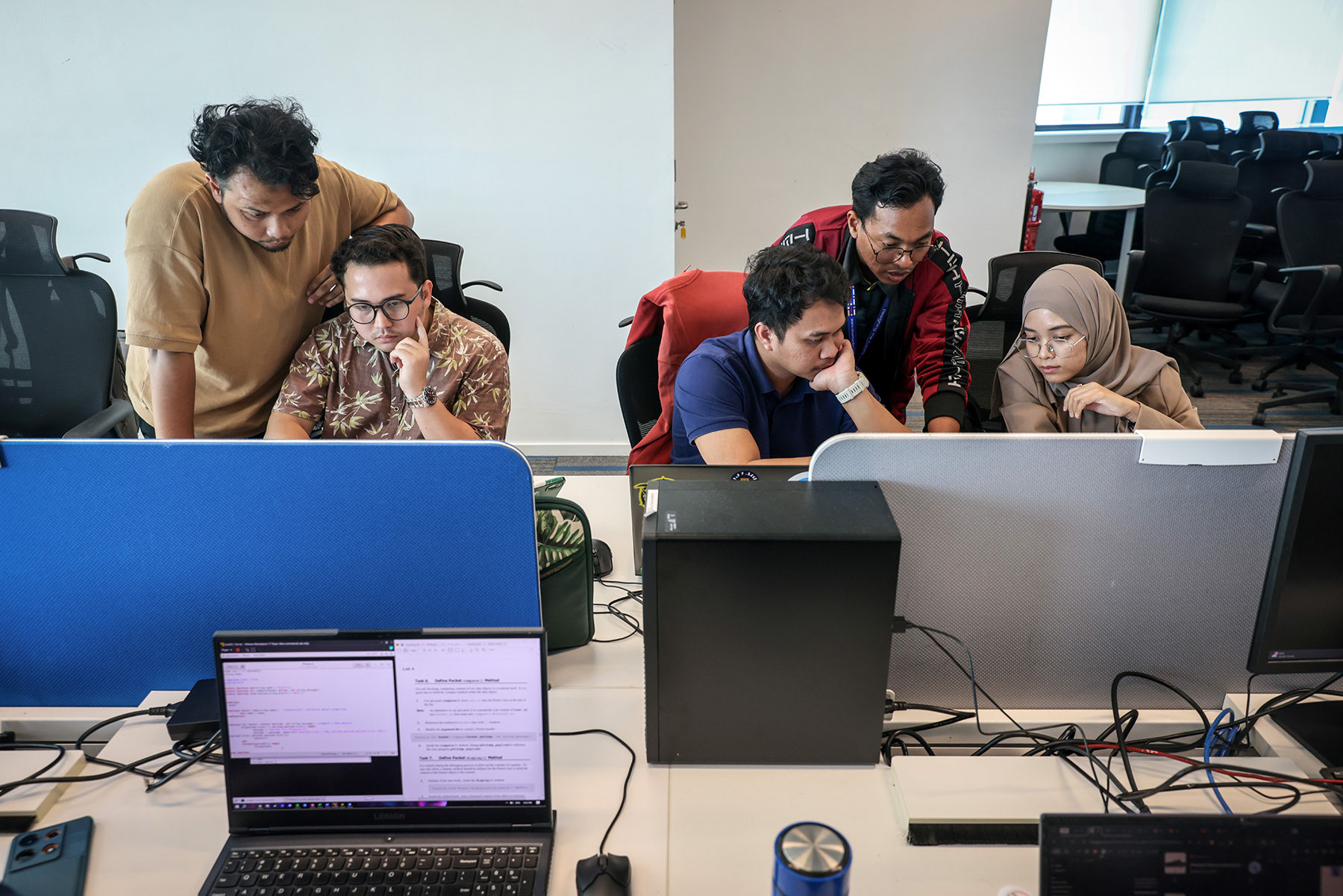On the edge of the Malaysian capital Kuala Lumpur is an old factory of the American phone manufacturer Motorola. Old-fashioned low-rise building with long corridors where cheap labor once screwed together bonky phones. But now the Dutch chip manufacturer NXP makes advanced chips there for the automotive industry and mobile communication.
In dust-free rooms with overpressure, robots drive 24/7 through streets full of very expensive devices that test so-called silicone wafers, look chips with extreme precision and connect them to a motherboard via copper wire thinner than a human hair. Engineers in sterile suits watch through microscopes and keep an eye on minimal margins of error through computer screens. After all, one choppy chip in a car can cost lives.
In dust-free rooms with overpressure, robots drive 24/7 through streets full of very expensive devices that test so-called silicone wafers, look chips with extreme precision and connect them to a motherboard via copper wire thinner than a human hair. Engineers in sterile suits watch through microscopes and keep an eye on minimal margins of error through computer screens. After all, one choppy chip in a car can cost lives.





In dust-free rooms with overpressure, robots drive 24/7 through streets full of very expensive devices that test so-called silicone wafers, look chips with extreme precision and connect them to a motherboard via copper wire thinner than a human hair. Engineers in sterile suits watch through microscopes and keep an eye on minimal margins of error through computer screens.
After all, one choppy chip in a car can cost lives.





In other hand, a kind of introductory course for excellent students has been set up in the province of Klang Valley. ‘At university I get basic knowledge, here I get the latest industrial knowledge’, says 24-year-old Thrishila Maniam who studies electrical engineering. The cheerful third-year is sitting in a room with sixty peers and looking at a computer screen full of incomprehensible characters. ‘I am now writing code in System Verilog for a test bench verification. Very interesting.’
Text written by Noël van Bemmel for de Volkskrant



